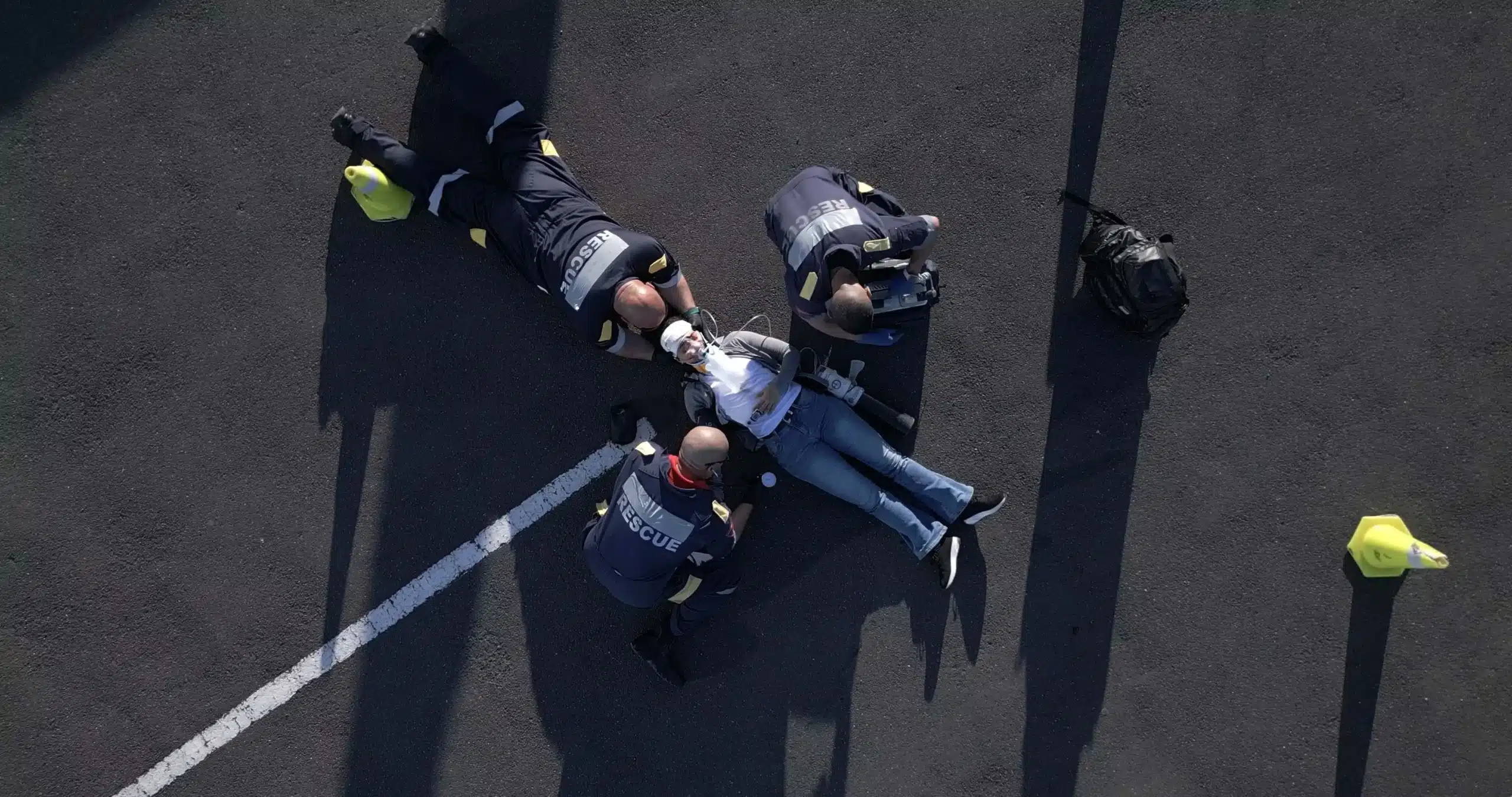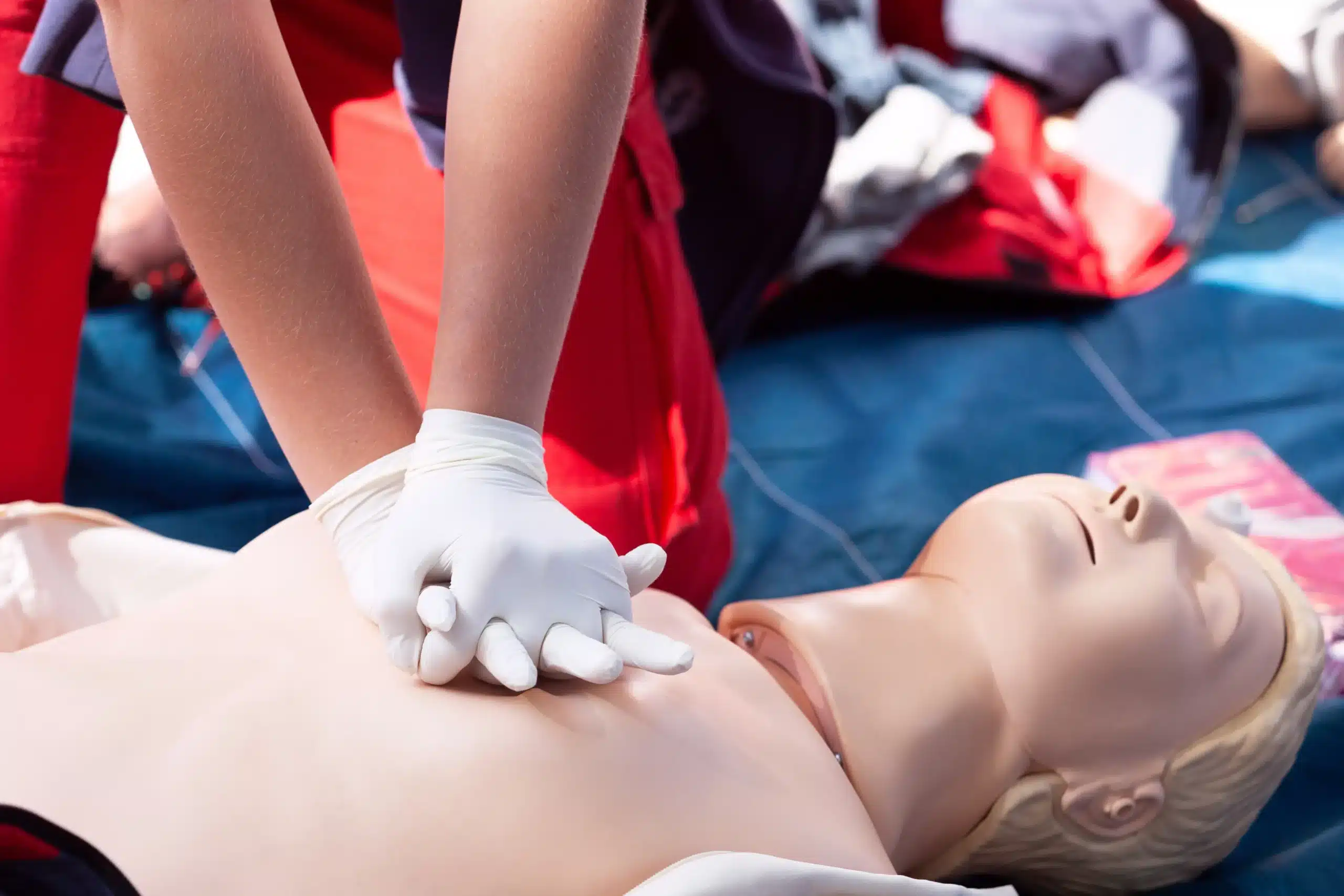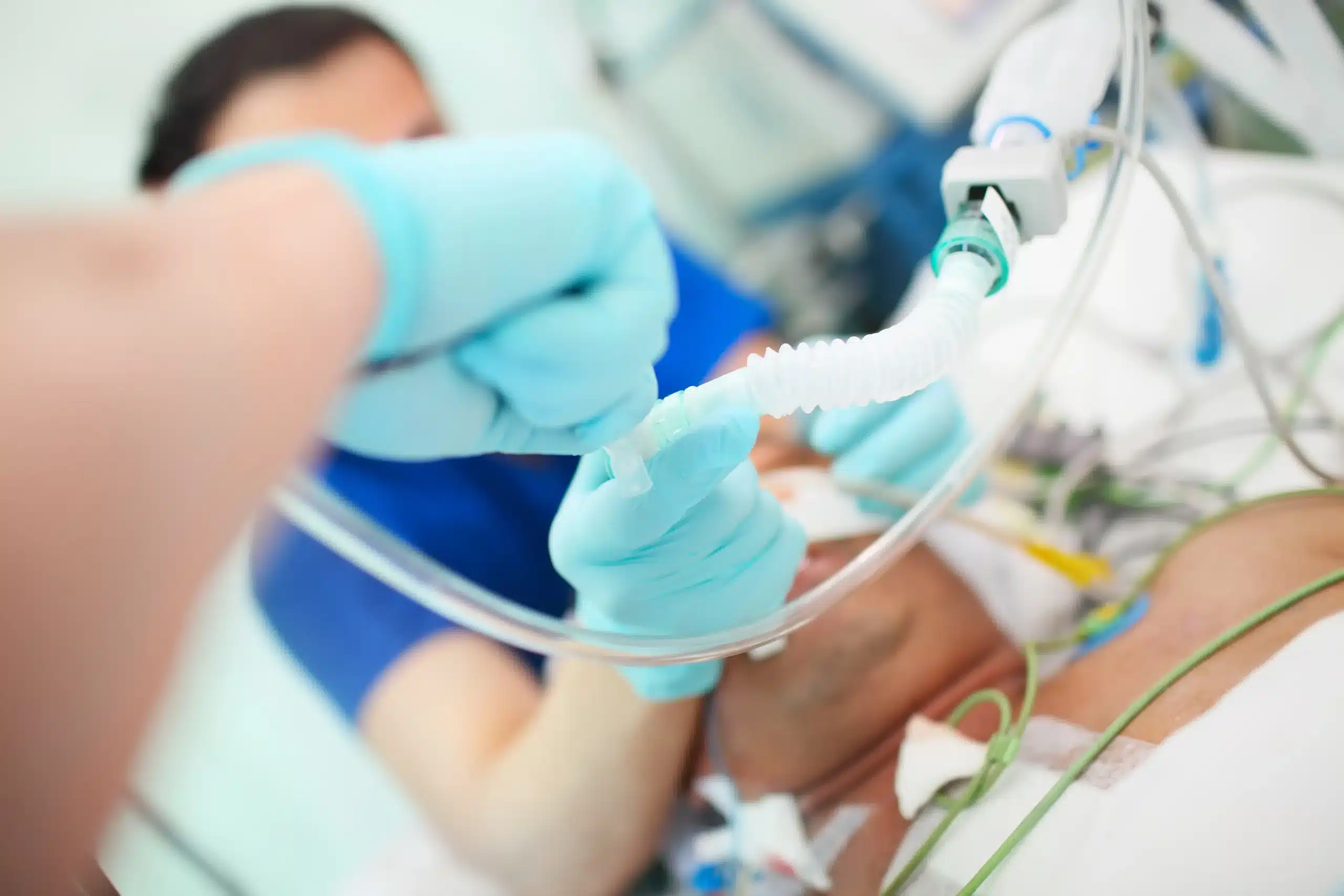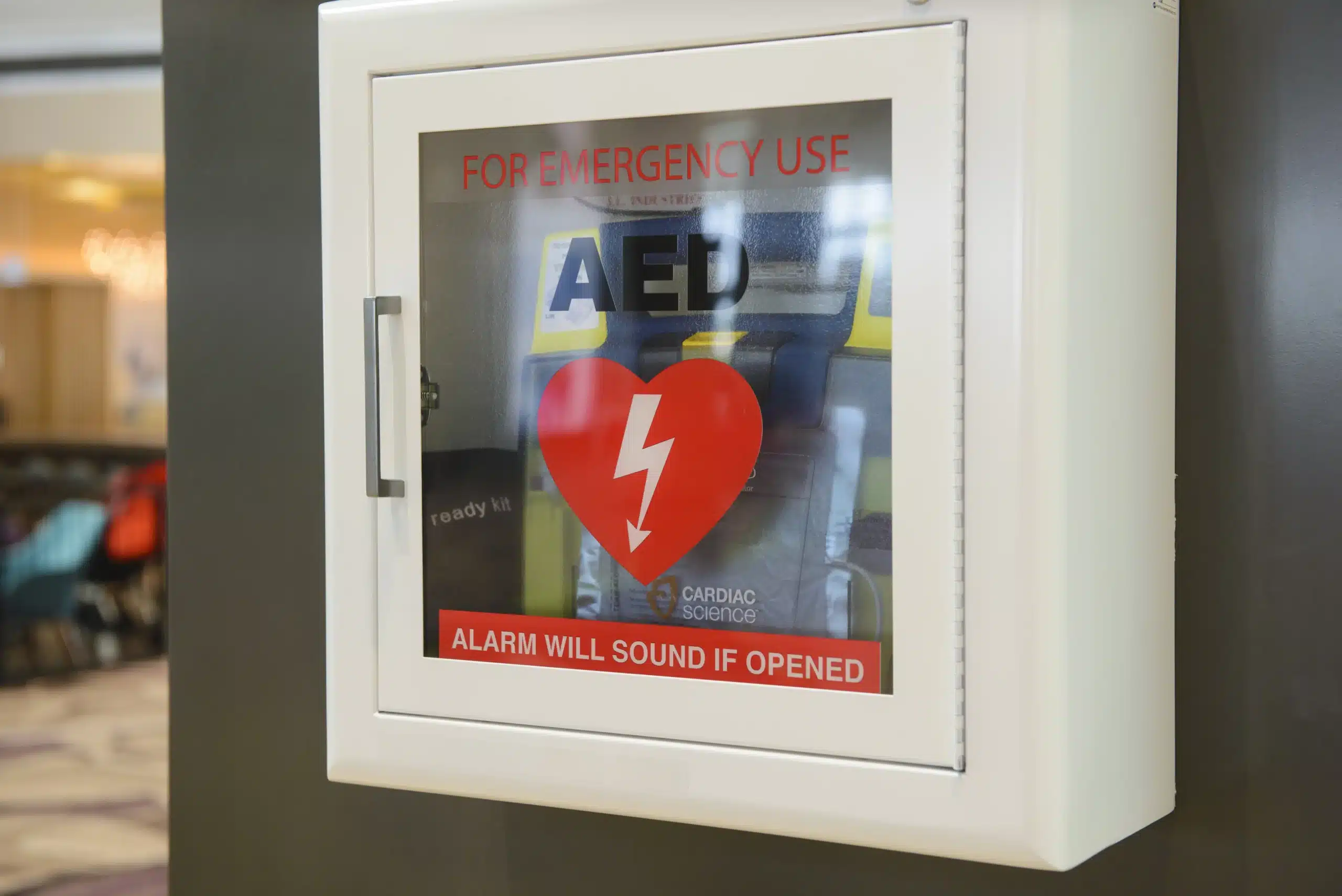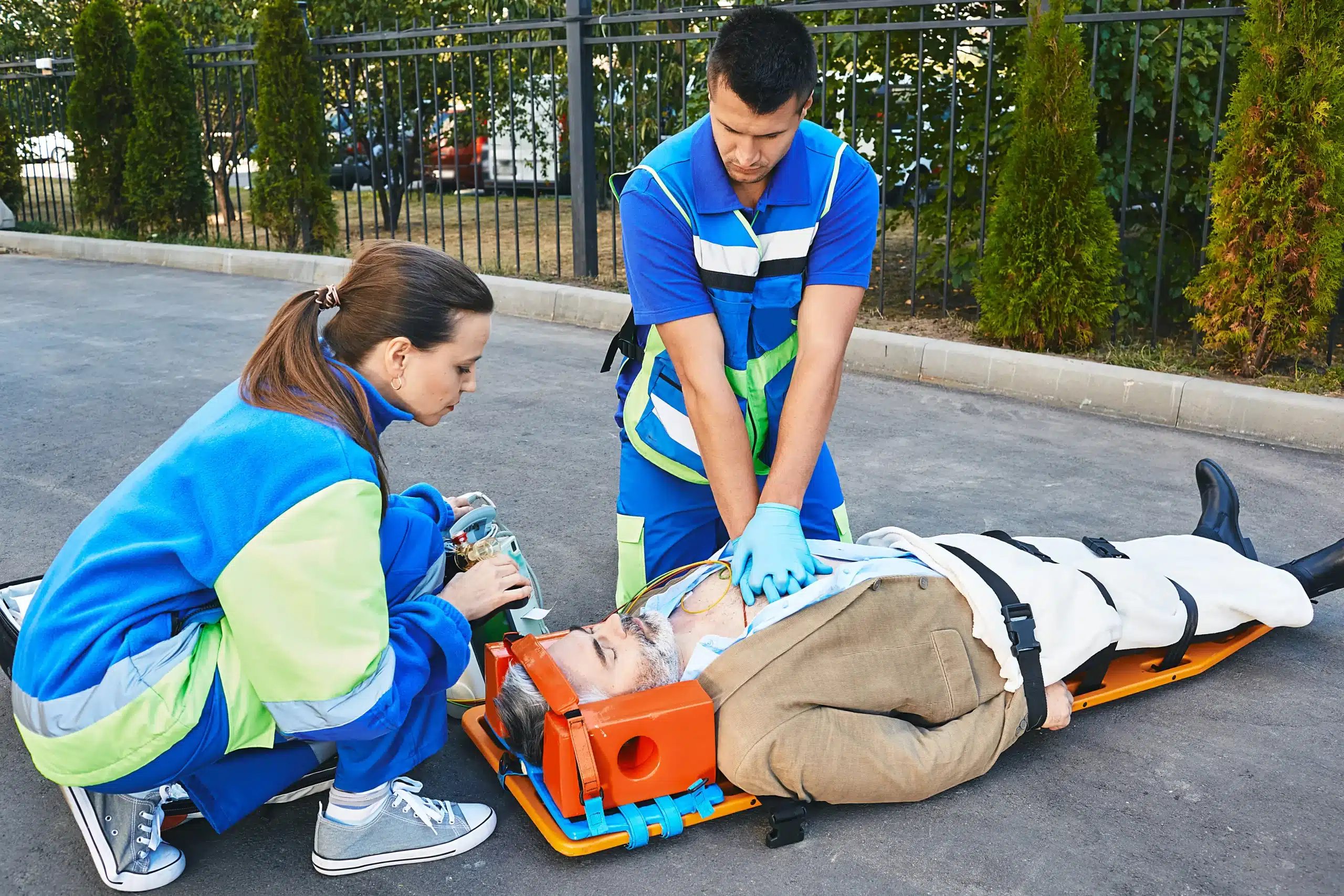Working in healthcare, you know how crucial it is to keep your skills sharp, especially when it comes to pediatric advanced life support (PALS). But traditional PALS courses can be a scheduling nightmare. That’s where RQI PALS classes in San Mateo come in. RQI, or Resuscitation Quality Improvement, offers a fresh, flexible approach to PALS certification. Think shorter, more frequent practice sessions that easily fit into your busy routine, combined with advanced simulation technology and real-time feedback. Intrigued? Keep reading to discover how RQI PALS can transform your approach to pediatric care.
Key Takeaways
- RQI PALS offers flexible, skills-based training: Unlike traditional PALS courses, RQI PALS uses shorter, more frequent practice and real-time feedback, making it easier to fit training into your schedule and improve long-term skill retention.
- RQI PALS uses simulation technology and provides real-time feedback: This immersive learning gives you immediate feedback on your performance, helping you refine your technique and improve your response time.
- RQI PALS certification is easy to get and maintain: The blended learning format combines online modules with hands-on skills sessions, offering a convenient and efficient way to get certified and stay current with the latest guidelines.
What are RQI PALS Classes?
RQI (Resuscitation Quality Improvement) programs offer a modern approach to PALS (Pediatric Advanced Life Support) certification. RQI PALS classes help healthcare professionals in San Mateo maintain their critical life-saving skills through regular, short practice sessions. These sessions, featuring simulation stations and real-time feedback, ensure skills proficiency. This differs from traditional PALS courses, which typically involve longer, less frequent training. RQI is designed to improve resuscitation skills and, ultimately, patient outcomes. Learn more about our RQI programs.
Key RQI PALS Features
RQI PALS training features short, frequent practice sessions that easily fit into busy schedules. This method reinforces essential skills and builds confidence over time. RQI uses simulation stations and real-time feedback, allowing healthcare providers to practice their skills in a realistic environment and receive immediate feedback on their performance. This type of simulation-based training helps maintain skills at the highest possible level.
Evolution of PALS Training
RQI represents a shift from traditional PALS training to a more flexible, skills-based approach. Traditional PALS courses often involve lengthy classroom sessions and infrequent practice. RQI emphasizes consistent practice and ongoing assessment. This competency-based approach, with its low-dose, high-frequency training, ensures that healthcare providers maintain their resuscitation skills and knowledge. RQI programs in San Mateo offer this flexible and effective approach to PALS training.
RQI PALS vs. Traditional PALS: What’s the Difference?
RQI PALS (Resuscitation Quality Improvement–Pediatric Advanced Life Support) updates traditional PALS training by focusing on continuous improvement and real-time feedback. Let’s explore the key differences:
Flexible Learning and Continuous Improvement
Traditional PALS courses often involve long classroom sessions and infrequent practice. RQI PALS offers a different approach. Shorter, more frequent practice sessions make it easier to fit training into a busy schedule. This flexible learning style accommodates busy schedules and reinforces crucial skills through regular practice, as highlighted in RQI Certification in Palo Alto: Your Complete Guide. RQI PALS emphasizes ongoing skill development, leading to higher competency over time. The blended learning format and shorter sessions improve long-term skill retention, as explained in our guide to RQI in San Mateo.
Advanced Simulation Technology
RQI PALS uses advanced simulation technology to create realistic training scenarios. These simulation stations provide real-time feedback on your performance, helping you refine your technique and improve your response time. As SureFire CPR explains in their article What is RQI, this real-time coaching and feedback hone CPR skills to optimize patient outcomes. This immersive learning experience goes beyond traditional methods, better preparing you for real-world emergencies. SureFire CPR further emphasizes the benefits of simulation stations in their article on elevating healthcare training with RQI, highlighting how they provide state-of-the-art resuscitation training.
Real-Time Feedback and Assessment
One of the most significant advantages of RQI PALS is the real-time feedback and assessment. Unlike traditional PALS courses that rely on infrequent testing, RQI PALS uses simulation stations to continuously monitor your performance. This immediate feedback allows you to identify areas for improvement and adjust your technique accordingly. The Resuscitation Coach explains how the RQI program helps healthcare providers maintain essential CPR skills and knowledge, critical for effective response during cardiac arrest in their overview of the RQI program. Regular practice with real-time feedback, as described in this study on nursing students, enables participants to maintain their compression and ventilation skills at a high level. This continuous assessment ensures you’re always prepared to provide the best possible care.
What Happens in RQI PALS Training?
RQI PALS training blends online learning with hands-on practice, creating a flexible and efficient way to learn these essential skills. This approach lets you learn at your own speed and refresh your knowledge regularly. Here’s a closer look at what to expect:
Online Modules and Self-Paced Learning
The RQI PALS program begins with online modules you can complete at your convenience. These self-paced lessons cover the core concepts of PALS, including pediatric assessment, rhythm recognition, and treatment algorithms. The American Heart Association RQI (Resuscitation Quality Improvement) program offers a modern and efficient path for medical and healthcare professionals to receive their official American Heart Association BLS, ACLS, and PALS certifications. This online portion allows you to focus on specific areas where you might need a refresher, making the learning process more personalized.
Hands-on Practice and Voice-Assisted Manikins
After completing the online modules, you’ll move on to hands-on practice using voice-assisted manikins. These sophisticated manikins provide real-time feedback on your technique, helping you refine your skills and build confidence. An instructor isn’t present during the skills test, but support is available by phone. This allows you to practice in a low-pressure environment and master the practical application of PALS protocols.
Blended Learning Approach
RQI PALS uses a blended learning approach that combines online learning and in-person practice. This flexible structure makes it easier to fit training into a busy schedule. Short, regular practice sessions reinforce essential skills and build confidence. RQI offers a flexible, skills-based approach to CPR training. This method helps you learn the material effectively and retain the information long-term.
Enroll in RQI PALS Classes in San Mateo
Ready to take the next step in your healthcare career? Enrolling in RQI PALS classes in San Mateo is straightforward, especially with the resources available through Safety Training Seminars. Here’s a step-by-step guide to help you through the process.
Prerequisites and Eligibility
Before signing up for RQI PALS classes, make sure you’ve completed the HeartCode® PALS online module. This online portion gives you a baseline understanding of pediatric advanced life support principles before you move on to hands-on training. If your job requires BLS certification, you’ll also need to complete CPR training through the RQI program to meet workplace standards.
Step-by-Step Registration
Registering for RQI PALS classes in San Mateo is easy. Safety Training Seminars offers RQI classes daily, giving you plenty of options to find a time that works for you. Visit our website for the latest schedule and to secure your spot. We offer a variety of courses, including BLS, ACLS, and PALS, all designed to meet the needs of healthcare professionals. Take a look at our low price guarantee for more information on pricing and our commitment to affordability.
Required Materials and Preparation
The RQI training program uses a blended learning approach. You’ll complete the online portion at home, which usually takes a few hours. This online component is key to preparing you for the in-person skills sessions. This combination of online learning and hands-on practice creates a dynamic and effective learning experience.
How Much Do RQI PALS Classes Cost in San Mateo?
When considering RQI PALS training, understanding the cost is a significant factor. This section breaks down the expenses associated with RQI PALS classes in San Mateo, compares them to traditional PALS courses, and highlights the overall value of this innovative approach.
Course Fees and Additional Expenses
RQI PALS courses typically involve a combination of online modules and in-person skills sessions. The cost often covers access to the online learning platform, hands-on training with certified instructors, and the necessary equipment. Additional expenses might include study materials or renewal fees. Contact Safety Training Seminars directly for the most up-to-date pricing information on our RQI programs. As with most training programs, the type of certification you pursue will affect the overall cost, as each level has varying requirements.
RQI vs. Traditional PALS Costs
While traditional PALS courses often involve a single, longer class, RQI PALS utilizes shorter, more frequent sessions. This distributed practice model may initially appear more expensive due to the ongoing nature of the training. However, consider the benefits of RQI’s flexible learning. Short, regular practice sessions make it easier to fit training into busy schedules while reinforcing essential skills. This approach can lead to better retention and improved competency over time, potentially reducing the need for refresher courses. Our low price guarantee ensures you’re getting the best value for your investment.
The Value of RQI PALS
The value of RQI PALS extends beyond the initial cost. RQI enhances the quality of CPR delivered during cardiac arrest by providing healthcare providers with frequent, high-quality training. The program’s focus on simulation training and real-time feedback ensures your resuscitation skills are at the highest possible level. This translates to improved patient care and increased confidence among healthcare professionals. For those seeking a modern, efficient, and practical approach to PALS certification, RQI offers significant advantages. Safety Training Seminars offers various RQI programs, allowing you to complete training and receive your American Heart Association certification quickly.
Get and Maintain Your RQI PALS Certification
The American Heart Association RQI (Resuscitation Quality Improvement) program offers a streamlined path to PALS certification, designed to fit the busy schedules of healthcare professionals. It focuses on regular practice and personalized feedback. Here’s how you can get and maintain your RQI PALS certification:
Initial Certification Process
Getting your initial RQI PALS certification is straightforward, blending online learning and hands-on skills practice. You’ll start by completing online modules at your own pace, from anywhere with an internet connection. After finishing the online portion, you’ll schedule a hands-on skills session at a designated RQI skills station. These in-person sessions allow you to demonstrate your skills and receive real-time feedback from instructors.
Ongoing Skills Assessment
Unlike traditional PALS courses with infrequent renewals, RQI emphasizes continuous improvement through short, regular skills assessments. These sessions, typically held quarterly, reinforce essential skills and maintain proficiency. This approach makes training easier to fit into your busy schedule and builds confidence in responding effectively during emergencies. The focus on regular practice ensures you’re always ready to provide high-quality care.
Renewal Requirements
Maintaining your RQI PALS certification involves consistent participation in the ongoing skills assessment sessions. By completing these regularly, you demonstrate continued competency and uphold RQI standards. This commitment to ongoing practice keeps your resuscitation skills sharp, ensuring you’re prepared to deliver effective care when it matters most. RQI training raises the quality of CPR and helps maintain the skills and knowledge critical for positive patient outcomes.
Who Should Take RQI PALS?
RQI PALS (Resuscitation Quality Improvement Pediatric Advanced Life Support) courses are designed for healthcare professionals who need to maintain their PALS skills and certification. This blended learning approach combines online modules with low-dose, high-frequency skills sessions, making it ideal for busy schedules and diverse learning styles. Let’s explore who benefits most from RQI PALS training.
Healthcare Professionals and Specialists
RQI PALS is a valuable resource for healthcare professionals regularly involved in pediatric emergency care. This includes physicians, nurses, paramedics, respiratory therapists, and other specialists working in emergency departments, intensive care units, and pediatric care settings. The flexible, self-paced nature of RQI training makes it easier to fit into busy schedules while reinforcing essential skills and building confidence.
Emergency Responders
Emergency responders, such as paramedics and EMTs, also benefit significantly from RQI PALS training. The program’s use of simulation stations and real-time feedback ensures resuscitation skills are honed to the highest possible level, optimizing patient outcomes. This high level of preparedness is crucial for first responders who frequently encounter pediatric emergencies in the field.
Why Experienced Providers Benefit
Even experienced healthcare providers can enhance their skills and knowledge through RQI PALS. Studies show RQI-trained professionals often deliver chest compressions within the AHA-recommended rate more consistently than those trained through traditional instructor-led courses. By providing frequent, high-quality CPR training, the RQI program improves the quality of CPR delivered during cardiac arrest. This ongoing reinforcement of best practices ensures that even seasoned professionals stay sharp and current with the latest guidelines. RQI PALS helps maintain muscle memory and consistent performance, ultimately leading to better patient outcomes.
Choose an RQI PALS Provider in San Mateo
Finding the right provider for your RQI PALS training is crucial for a positive and effective learning experience. Here are some factors to consider when making your decision:
Safety Training Seminars
Safety Training Seminars is a woman-owned AHA Training Center offering high-quality American Heart Association BLS, ACLS, PALS, CPR, and First-Aid courses in San Mateo, CA. They offer a low-price guarantee, ensuring you receive excellent training at a competitive price. Serving San Mateo, Daly City, and Millbrae, their convenient location and commitment to customer service make them a popular choice. Learn more about their RQI courses.
Other Local Options
While Safety Training Seminars is a strong option, exploring other local providers is always recommended. Millbrae CPR Classes offers high-quality American Heart Association RQI courses, providing another convenient option for healthcare professionals in the area. Comparison shopping will help you find the best fit for your needs and budget.
Choosing the Right Provider
When evaluating RQI PALS providers, consider factors like instructor experience, course format (online, blended, or in-person), and overall cost. Thoughtful consideration of these factors is key to choosing effective training. Inquire about low-price guarantees. Asking potential providers about price matching will help you find the most affordable RQI certification. Finally, read reviews and testimonials from past students to understand their experiences.
Common RQI PALS Questions
This section addresses some of the most frequently asked questions about RQI PALS certification in San Mateo.
Time Commitment and Scheduling
RQI PALS classes offer a more flexible and efficient approach to certification than traditional PALS courses. The American Heart Association RQI program combines online learning with short, frequent skills sessions. This blended learning format allows healthcare professionals to complete the coursework at their own pace. Before attending a skills session, participants must finish the online HeartCode® PALS module. This online portion covers the cognitive components of PALS, ensuring you have a solid foundation before practicing your skills. The in-person skills evaluation and practice usually takes about an hour, fitting easily into busy schedules.
Physical Limitations and Accommodations
RQI PALS training is designed to be accessible to healthcare providers with physical limitations. If you have a physical limitation that may affect your ability to perform certain skills, discuss your needs with your RQI PALS provider. They can work with you to find reasonable accommodations. For specific questions about accommodations and responsibilities, consult the RQI FAQs.
Certification Validity and Recognition
RQI PALS certification is recognized by the American Heart Association and is valid for two years. The program focuses on continuous quality improvement, ensuring healthcare providers maintain up-to-date knowledge and skills. RQI training improves CPR quality and has the potential to save more lives. The program incorporates regular practice and assessment, helping healthcare professionals maintain their skills and confidence in providing high-quality CPR. This ongoing reinforcement makes RQI PALS a valuable asset.
RQI PALS Resources and Support
Maintain Your Skills After the Course
RQI PALS training goes beyond initial certification. Regular practice is key to maintaining proficiency in pediatric advanced life support. Studies show that practicing on an RQI simulation station every three months, with its real-time feedback, helps healthcare providers not only maintain but improve their compression and ventilation skills. This consistent reinforcement ensures you’re always ready to respond effectively in a pediatric emergency.
Accessing RQI Stations
One of the biggest advantages of RQI is convenient access to training stations. RQI stations are often placed within healthcare facilities, making it easy to fit training into your busy schedule. This on-site availability minimizes disruption to your workflow and allows for consistent practice without traveling off-site for refresher courses.
Ongoing Learning Opportunities
RQI PALS supports continuous learning and improvement. The program offers more than just certification—it provides a framework for ongoing skill development. RQI training has been shown to elevate the quality of CPR, leading to better patient outcomes. Programs like HeartCode® expand the reach of training to a wider range of healthcare workers, ensuring everyone has access to these life-saving skills. This commitment to ongoing education empowers healthcare professionals to stay at the forefront of best practices in pediatric advanced life support.
Related Articles
- RQI in San Mateo: Your Guide to Flexible CPR Training – San Mateo CPR Classes
- Pediatric Advanced Life Support (PALS) Training in Millbrae – San Mateo CPR Classes
- Online PALS Classes in Daly City: Your Guide – San Mateo CPR Classes
- BLS Training Near Me: A Practical Guide – San Mateo CPR Classes
- PALS HeartCode in Daly City: Your Complete Guide – San Mateo CPR Classes
Frequently Asked Questions
How does RQI PALS differ from traditional PALS training?
RQI PALS offers a more flexible and efficient approach than traditional PALS courses. It uses a blended learning format combining online modules with short, frequent skills sessions, allowing you to learn at your own pace and easily fit training into a busy schedule. Traditional PALS courses often involve longer, less frequent classroom sessions. RQI PALS emphasizes consistent practice and ongoing assessment using simulation stations and real-time feedback, leading to higher competency over time.
What does the RQI PALS training process involve?
RQI PALS training begins with online modules you complete at your own pace. These cover the core concepts of PALS. After completing the online modules, you’ll move on to hands-on practice using voice-assisted manikins that provide real-time feedback. This blended learning approach combines online learning and in-person practice for a dynamic and effective learning experience.
What are the costs associated with RQI PALS certification?
RQI PALS courses typically involve fees for online modules, hands-on training, and equipment. Contact Safety Training Seminars directly for the most up-to-date pricing. While the distributed practice model of RQI might seem more expensive initially, the flexible learning, better skill retention, and reduced need for refresher courses can offer long-term value. Safety Training Seminars also offers a low price guarantee.
Who would benefit from taking an RQI PALS course?
RQI PALS is ideal for healthcare professionals regularly involved in pediatric emergency care, including physicians, nurses, paramedics, respiratory therapists, and other specialists in emergency departments, intensive care units, and pediatric care settings. Emergency responders also benefit significantly from the program’s focus on simulation training and real-time feedback. Even experienced providers can enhance their skills and knowledge through RQI PALS, ensuring they stay current with the latest guidelines and maintain consistent performance.
How can I maintain my RQI PALS certification after completing the course?
Maintaining your RQI PALS certification involves consistent participation in ongoing skills assessment sessions, typically held quarterly. These sessions reinforce essential skills and demonstrate continued competency. Regular practice on an RQI simulation station, with its real-time feedback, helps maintain and improve compression and ventilation skills, ensuring you’re always prepared for a pediatric emergency. RQI PALS also supports continuous learning through additional resources and ongoing learning opportunities.
